In Whitefish, Justin Barry Has Designs to Stop Waste
Justin Barry believes he can play a role in protecting the environment by repurposing the gear, clothing and equipment that is so regularly cast aside and sent to the trash in this corner of Montana
By Mike Kordenbrock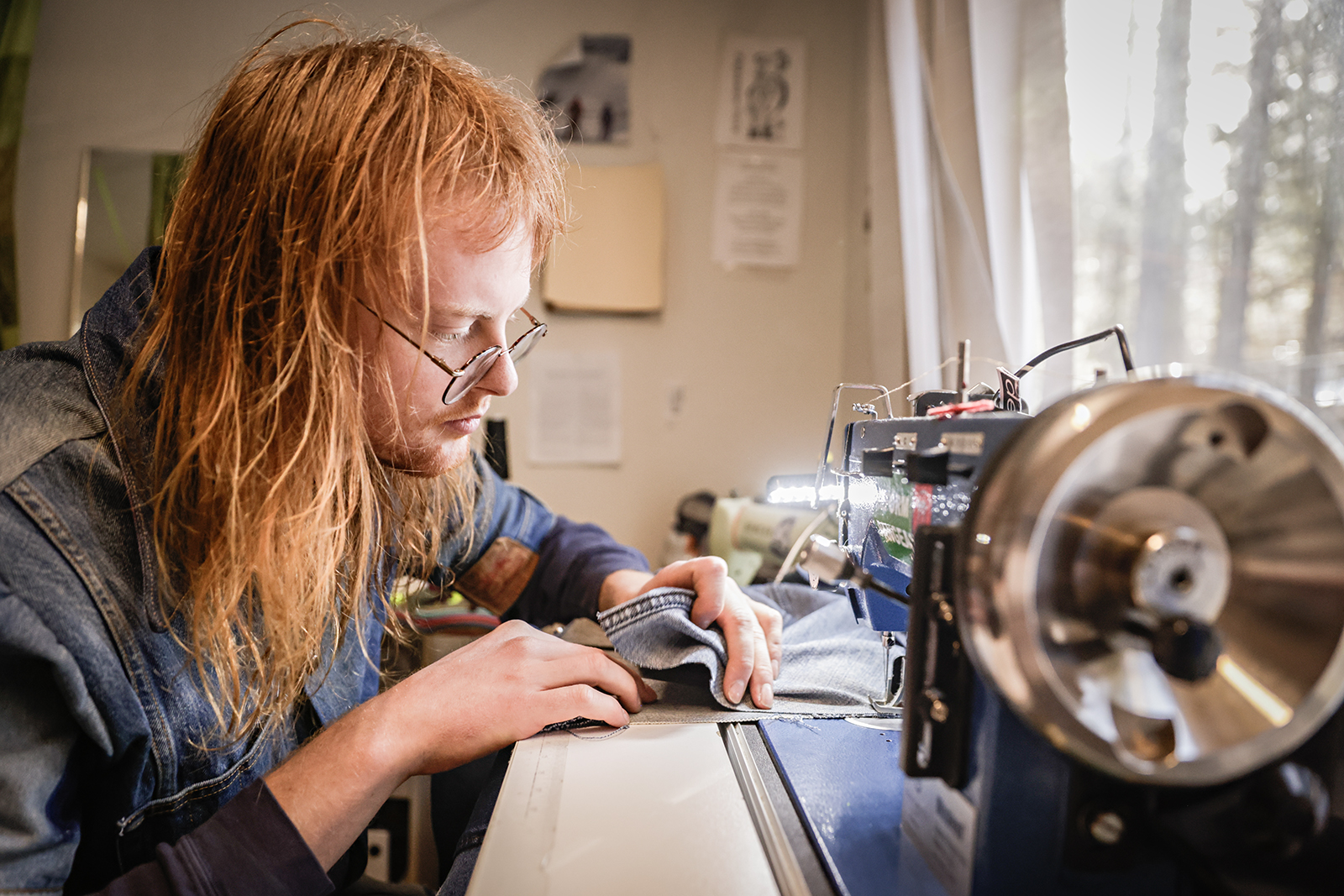
Wearing a denim shirt made from two pairs of Levi’s jeans and holding a “frankentote” bag stitched together from an old sweatshirt, it’s easy to think that Justin Barry is something of a mad scientist of all things wearable. But hearing more about his philosophy and approach to design, and seeing his creations in action, reveals a logic that is almost relaxing in its straightforwardness.
Barry cares about the environment. He cares about the land. He cares about the wild places that brought him here in the first place to work as a trail crew member with the Montana Conservation Corps. And he believes that he can play a role in protecting those things he cares about by repurposing the gear, clothing and equipment that is so regularly cast aside and sent to the trash in this corner of the state.
And there’s a demand for goods that embody that upcycling ethos, so much so that Barry is now designing, creating, and selling gear full-time, with his Whitefish apartment bedroom doubling as a studio, or, arguably, tripling as a studio and storage space. It’s the beating heart of Barry’s business Fdes (pronounced eff-duss), which is short for Functional Design. The stated goal is to make “functional items from would-be textile waste” with a goal towards achieving circularity.
“It’s sort of like, instead of making things, buying them, and throwing them away, it’s trying to capture that waste, divert it and make new things out of it,” Barry said of “circularity” as he uses the term. “I’m an environmentally concerned person. If we rethink the reasons why we make things, and what we’re making them out of, it can do a lot of good.”
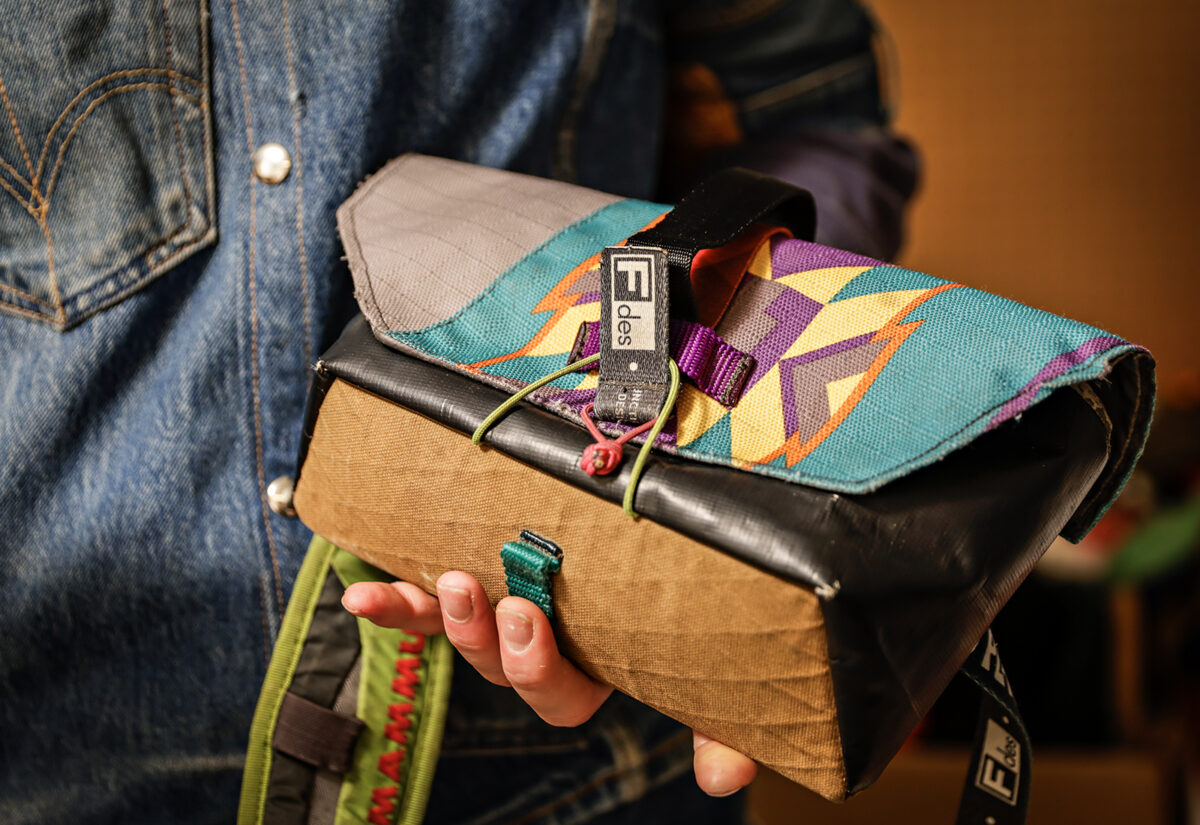
Barry’s been able to keep himself well supplied because of just how much people decide they don’t want or can’t sell. In the last year, most of the material he has used has come from individuals donating things that can no longer be used for their original purpose. Retailers are another source of material for Barry, who said he has agreements with a few local stores, like Sportsman & Ski Haus and Rocky Mountain Outfitters, who provide him with some of the outdoors equipment and gear that arrived from the manufacturer broken, is no longer protected by warranty, is unsellable, or is simply at the end of its life on store shelves.
Local manufacturers, like Lowitz Custom Shoppe and TUFA Climbing, have also supplied Barry with offcuts and deadstock materials. He tries to limit the extent to which he thrifts for items, since it’s somewhat counter to his philosophy. He’s looking to give an extended life specifically to things that are broken beyond repair, or that people are unable or unwilling to get any more use out of. Thrifting becomes tricky in that sense — an old dilapidated looking shirt still might be something that another person can use and enjoy.
His first big breakthrough came in about November 2020, while he was working at Markus Community Market. A coworker who had been doing some screen printing had accumulated a bunch of misprinted sweatshirts. Knowing that Barry had some skill sewing, the coworker offered up a stack of the misprinted clothes to Barry with the request that he find a way to repurpose them. Those became totebags, or frankentotes, as Barry calls them.
“That was the first time I did upcycling,” Barry said.
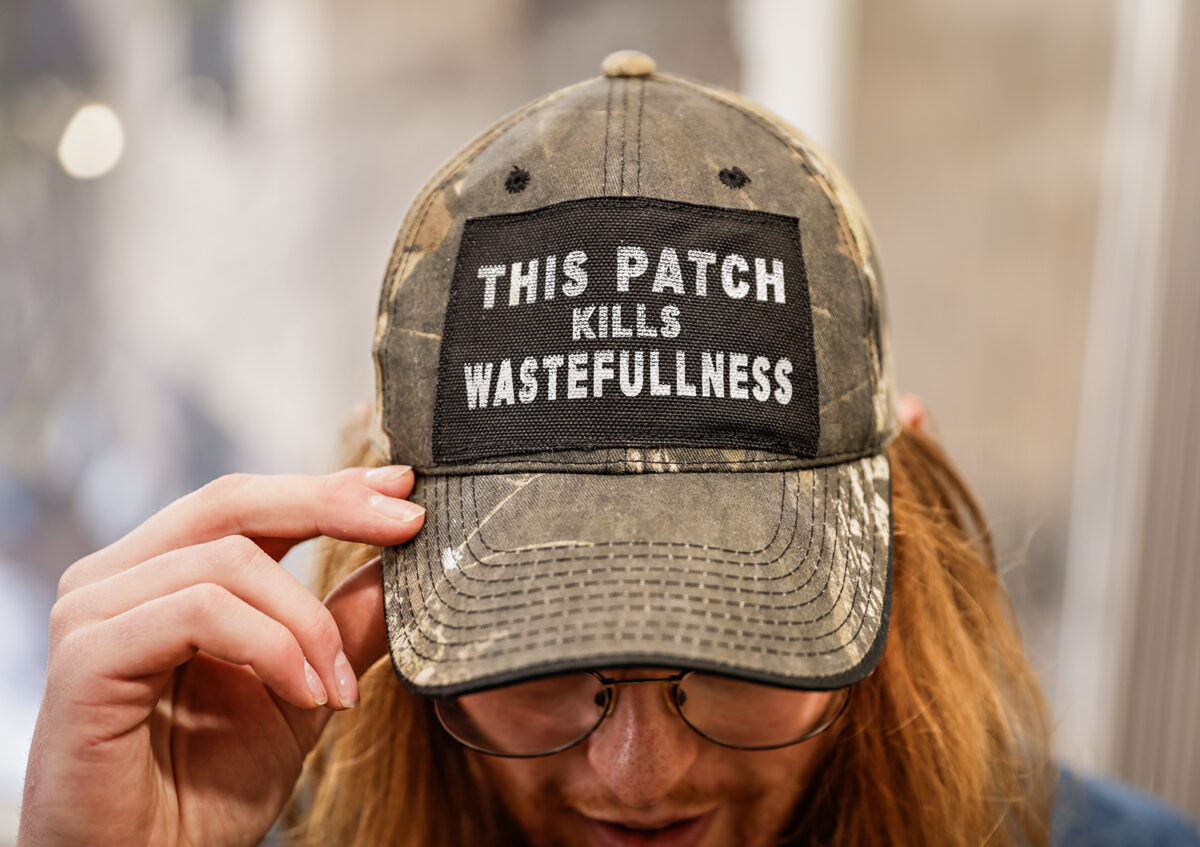
It was something of an eye-opening experience, which inspired Barry to start looking around for more avenues to acquire material for upcycling. The results have included a variety of designs, including “Parapaks,” a single strap backpack made out of retired paragliding wings, which can fold in on itself for storage; and a series of Sister Bags laptop bags, based off a design made for Barry’s two sisters. The sister bags have shoulder straps which pull the bag closed and one model features an exterior storage netting made of old bicycle tubes. Another Sister Bag model is constructed partially from stitched-together shoe leather and blue fabric offcuts. Barry also has a whole line of fanny pack-style handy packs, which double as bicycle handlebar bags. They’re made from materials including denim, MultiCam flaps, salvaged x-pac laminate fabric, repurposed backpack straps, seat belts, cordura, waxed canvas, climbing harnesses and recycled polyester webbing.
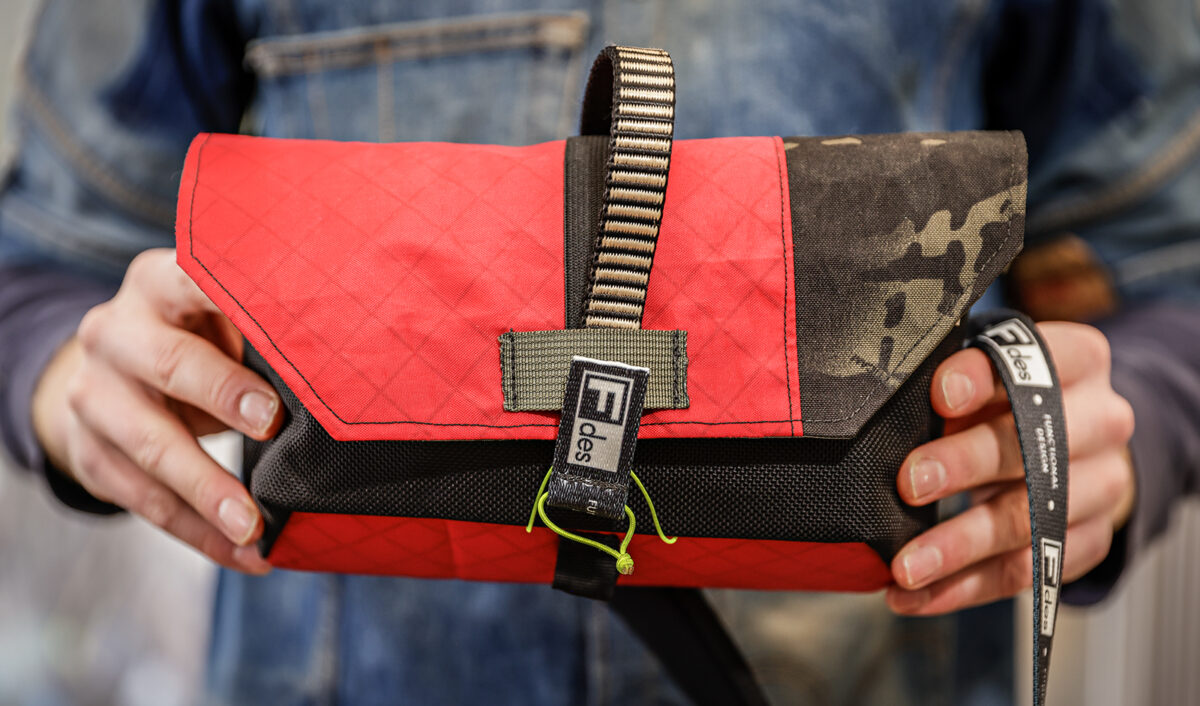
The handy packs close using looped closure mechanisms, in which paracord loops can be pulled over ridged tabs of fabric, or webbing tabs, to be held in place, in what’s a sort of a hook-and-loop closure. That’s not just for show, or for the sake of creativity — it’s just another small way to try and ensure the bag has a longer life in the hands of whoever winds up with it. Zippers and buckles are things that Barry tries to avoid, largely because they break, and they’re hard to replace. The hooks and paracord loops, though, are easy to repair.
“This is kind of a minimal way of providing closure. Simple and functional,” Barry said of one of his bags.
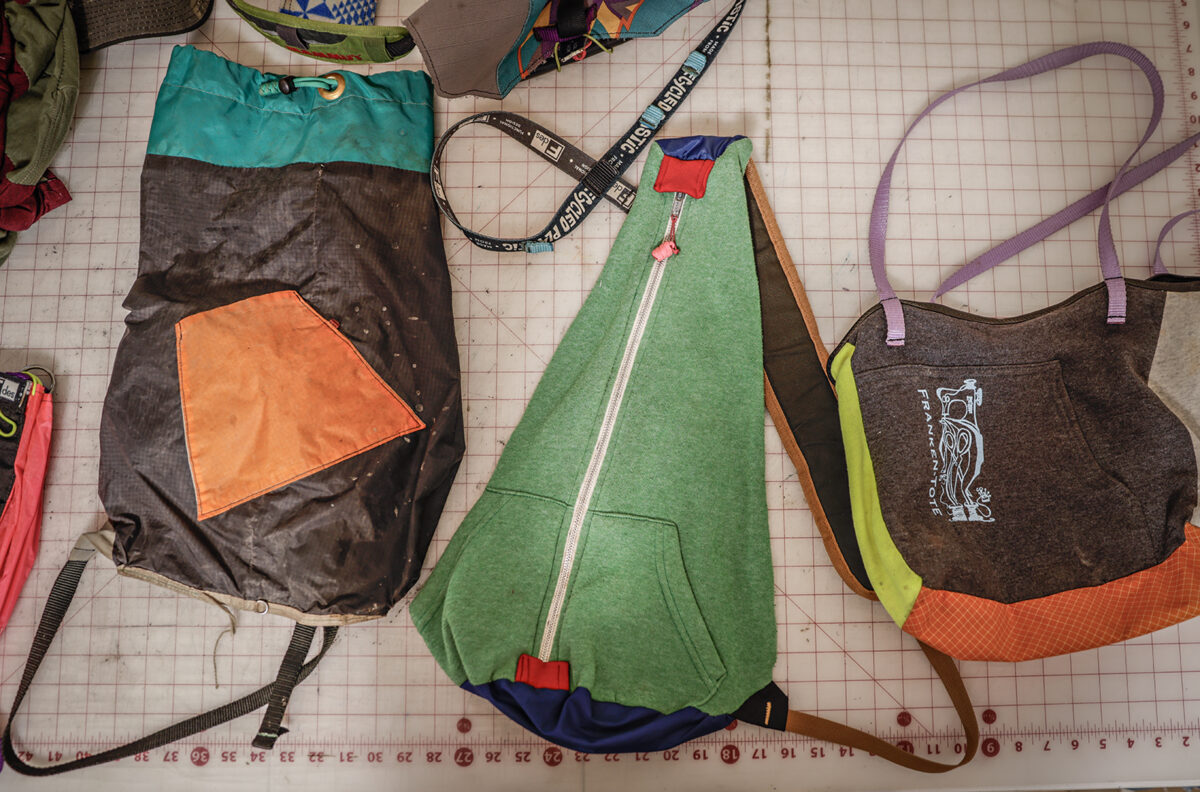
His favorite part of the process is the experimentation phase, and it’s led to some interesting results. In a one-off creation, Barry was able to fashion a small purse which uses part of a ski boot as its reservoir for holding items. Disassembling things, and trying to better understand the form and function of the materials that go into items, including a ski boot, is is one part of how Barry feeds his creativity and increases his knowledge.
He doesn’t consider himself an artist, and prefers to think of himself as a maker. “I want to make functional things that reduce textile waste and are fun to use, and are going to hold up — are going to be useful things,” Barry said.
There’s an organized chaos to Barry’s stockpile of old tent walls cut down into swatches of fabric or ski skins that might one day find another life as part of a minimalist wallet whose contents are accessed with the pull of a drawstring. The work gets done on one of three sewing machines that Barry has stashed in his room, each having its own strengths and weaknesses for particular tasks. A broad cutting table is nearby, its white surface marked with red hashes and numbers to assist with measuring.
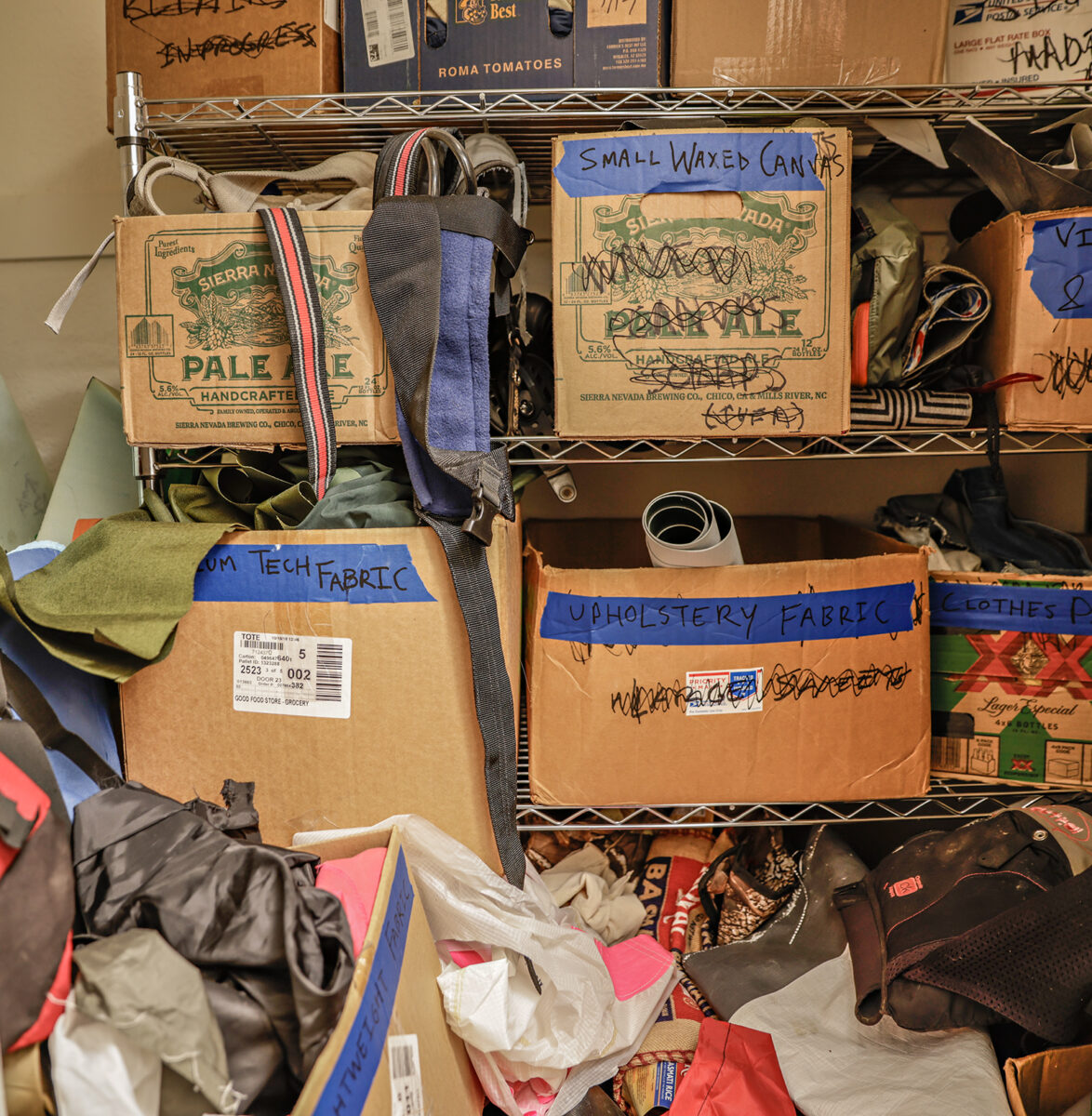
Barry graduated from the University of Minnesota in 2019 with a major in mechanical engineering and a minor in product design. His studies as an undergraduate included shape memory technology in functional apparel, human factor analyses of rock and ice climbing products, the tensile performance of rock climbing carabiners, and the development of a wearable latching mechanism for therapeutic compression systems. Barry isn’t done learning, either, saying that he is apprenticing with Milen Krastev, a Whitefish-based master tailor who sells custom leather boots and apparel under the brand name Mad Leather.
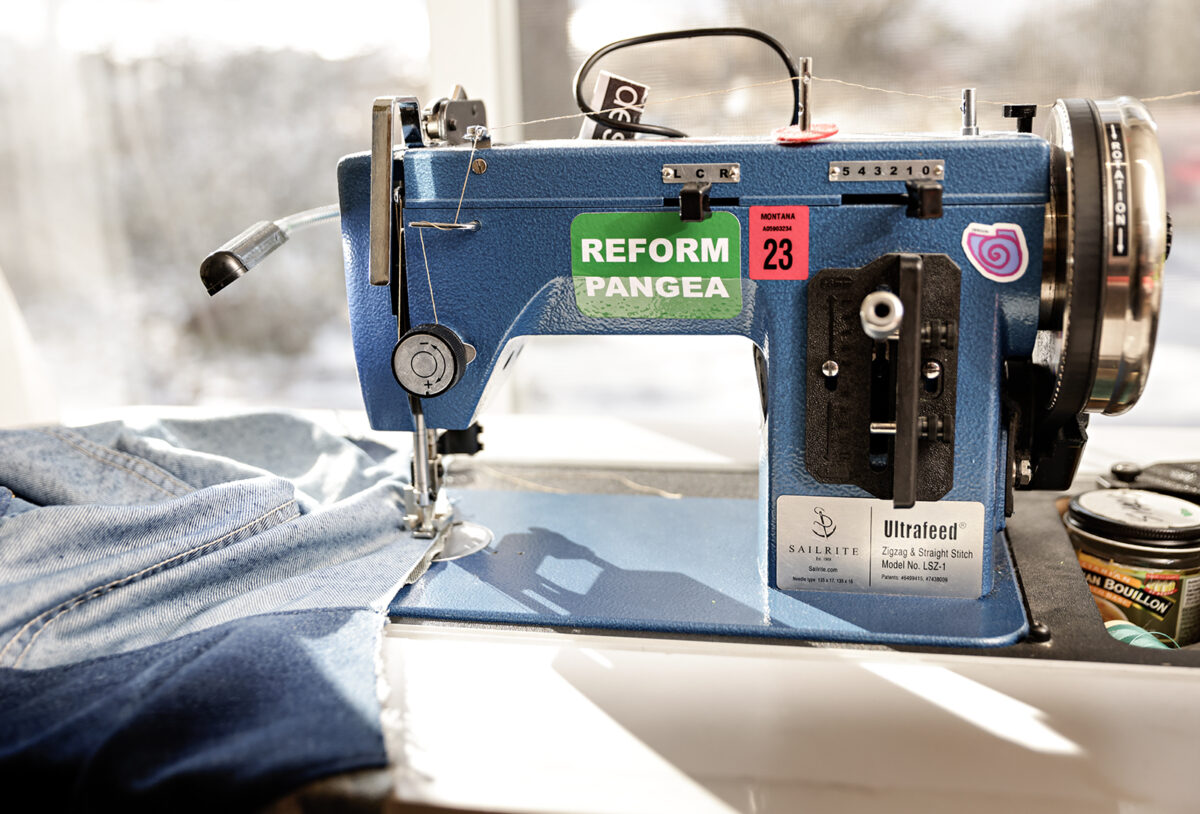
But part of Barry’s pursuit of circularity means not just accumulating knowledge for himself, but also sharing it with others. For about the last year he has been working with the county library system to host free instructional workshops. The next one is this Thursday, March 14 from 3 p.m. to 6 p.m. in the Columbia Falls City Council chambers. It’ll be a demonstration of how to turn an old sweatshirt into a useful and personalized tote bag. All skill levels are welcome, and attendees need only to bring an old sweatshirt.
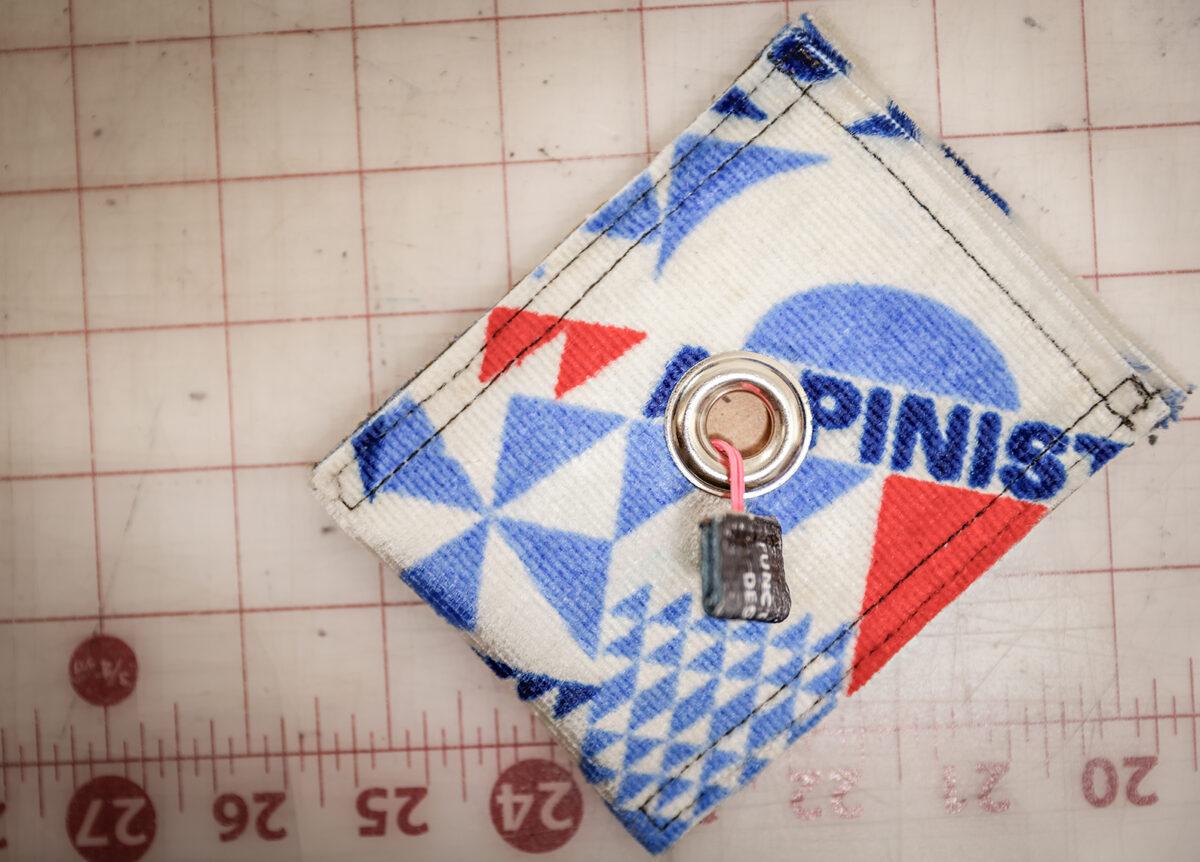
“I can only reduce textile waste so much,” Barry said. “But if I can empower a lot of other people to do that, if I can give them skills … that’ll just spread the mission a lot farther than just myself.”
And when he’s not making products of his own design, or teaching others, Barry said he’s open to take on custom upcycling and sewing projects. For more information, you can check out his website at https://www.fdesfunctionaldesign.com/.